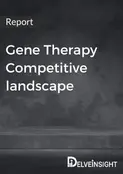Προωθημένο
The State of Gene Therapy: Clinical Milestones and Market Outlook

Gene therapy represents a paradigm shift in medical treatment, utilizing genetic modification techniques to address diseases at their molecular foundation. This innovative therapeutic approach has evolved from experimental science to established medical practice, with numerous treatments progressing through development channels and multiple options now accessible to patients.
Diverse Therapeutic Development
The gene therapy pipeline demonstrates substantial progress across varied medical disciplines:
Cancer Treatment Breakthroughs: Chimeric antigen receptor T-cell (CAR-T) therapies mark a significant milestone, modifying patients' immune systems to recognize and destroy cancer cells. These interventions are progressing through various trial phases, predominantly targeting hematological malignancies while exploring solid tumor applications.
Genetic Disease Solutions: Researchers are developing interventions for hemophilia, sickle cell disease, and beta-thalassemia using multiple technological platforms:
-
Adeno-associated virus (AAV) vectors delivering therapeutic genetic sequences
-
CRISPR technology providing targeted correction of pathogenic mutations
-
Lentiviral vectors enabling gene transfer in cells processed outside the body
Ophthalmic Applications: Inherited retinal disorders present promising opportunities since ocular tissue provides a favorable immune environment for treatment administration. Multiple initiatives are progressing for Leber congenital amaurosis and retinitis pigmentosa.
Neurological Applications: Despite blood-brain barrier challenges, scientists are pursuing treatments for spinal muscular atrophy, Duchenne muscular dystrophy, and various lysosomal storage conditions.
Global Clinical Investigation
Worldwide, numerous gene therapy clinical trials are actively enrolling patients across all development stages. Initial-phase research (Phase I/II) constitutes most current activity, validating safety profiles and determining therapeutic dosing. These investigations face unique obstacles including manufacturing reproducibility, immunological responses to delivery vehicles, extensive follow-up requirements, and patient identification for uncommon conditions.
Late-stage research (Phase III) is advancing for multiple promising therapies, particularly in hemophilia and certain inherited metabolic disorders where clinical endpoints are well-characterized.
Industry Stakeholder Landscape
The commercial ecosystem encompasses diverse organizational types:
Established Pharmaceutical Leaders: Major pharmaceutical corporations have expanded into gene therapy through strategic acquisitions, partnerships, and proprietary research programs, contributing essential manufacturing capacity and regulatory expertise required for commercialization.
Focused Biotechnology Enterprises: Numerous gene therapy companies dedicate their resources exclusively to developing these advanced therapeutics, often creating innovative delivery mechanisms or proprietary editing platforms. Many specialize in targeted disease areas or distinctive technological approaches.
Academic Research Institutions: Universities and research organizations remain vital for foundational discovery and proof-of-concept validation, frequently establishing partnerships with industry for clinical development.
Regulatory Achievements
Several gene therapy drugs have secured regulatory clearance, validating the technology's therapeutic potential:
-
CAR-T therapies for specific hematologic cancers
-
Treatments targeting inherited retinal conditions
-
Therapies for spinal muscular atrophy
-
Recent approvals addressing sickle cell disease
Persistent Development Challenges
Researchers continue addressing critical hurdles:
-
Complex production requirements and elevated costs
-
Ensuring persistent therapeutic gene expression
-
Managing immunological responses to vectors or modified cellular products
-
Establishing comprehensive regulatory pathways for novel therapeutic modalities
-
Demonstrating safety over extended patient lifespans
Emerging Technologies
Industry innovators are exploring next-generation strategies including systemically administered in vivo CRISPR modifications, non-viral delivery platforms, base and prime editing technologies enabling more precise genetic changes, and multimodal approaches integrating genetic therapies with complementary interventions.
The sector experiences continuous expansion with regular initiation of new clinical studies targeting progressively broader disease categories. This robust activity reflects strengthening confidence in genetic medicine, as treatments for historically untreatable conditions advance toward patient populations. With growing long-term evidence from ongoing investigations and increasing industry participation, the therapeutic landscape undergoes continuous evolution.
Latest reports offered by Delveinsight
Chemotherapy-Induced Peripheral Neuropathy Market | Cholangiocarcinoma Market | Chronic Constipation Market | Chronic Granulomatous Disease Market | Chronic Venous Ulceration Market | Cluster Headaches Market | Coagulation Factor Deficiency Market | Cognitive Impairment Associated with Schizophrenia Market | Complex Regional Pain Syndrome Market | Complicated Intra-Abdominal Infections Market | Concussions Market Size | Congenital Hyperinsulinism Market | Contact Dermatitis Market | Convulsive Seizures Market | Corneal Dystrophy Market | Coronary Occlusion Market
About Delveinsight
DelveInsight is a leading healthcare-focused market research and consulting firm that provides clients with high-quality market intelligence and analysis to support informed business decisions. With a team of experienced industry experts and a deep understanding of the life sciences and healthcare sectors, we offer customized research solutions and insights to clients across the globe. Connect with us to get high-quality, accurate, and real-time intelligence to stay ahead of the growth curve.
Contact Us
Kanishk




